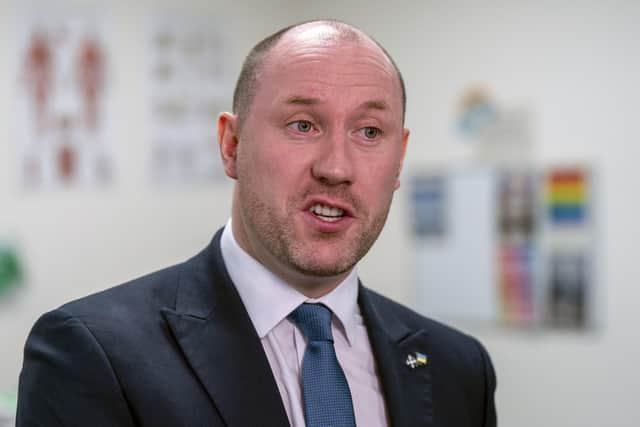NHS Scotland crisis: Time is running out to save Scotland's failing health service and Neil Gray must act now
Health is one of, if not the greatest of, Scotland’s devolved powers. That fact has placed an immense importance on the role of Scottish health secretary – and Neil Gray must bring forward a plan to revive the ailing health service immediately.
First, a snapshot of the poisoned chalice Mr Gray has inherited from Michael Matheson, who in turn had inherited a failing health service from the-now First Minister Humza Yousaf.
Advertisement
Hide AdAdvertisement
Hide AdScotland’s NHS is experiencing an intense amount of pressure due to staffing. Firstly, there is an immense Covid backlog to work through, which requires serious resources to tackle.


Secondly, a lack of staff is causing congestion at each stage of a patient’s journey through Scotland’s hospitals. There are limited care placements due to staffing shortages, so vulnerable patients cannot be discharged from wards. Care workers can earn more, and work in a much less demanding environment, such as in supermarkets, and are leaving in their droves.
The hospital wards themselves are staffed by a minimal number of exhausted, overworked and, in their opinion, underpaid staff. There are around 5,000 nursing vacancies in Scotland. The vulnerable patients who are fit enough to leave have nowhere to go.
The pressure in hospital wards is in turn causing congestion in accident-and-emergency (A&E) departments, where patients cannot be admitted to hospital beds that do not exist. Here too, staff are burned out and looking for the exit.
People are dying needlessly in overcrowded A&E departments. Public Health Scotland figures show in 2023, 117,741 show patients waited over eight hours in A&E, despite a maximum of four hours being the standard set by the Scottish Government.
The Royal College of Emergency Medicine has calculated there will be an excess death for every one in 72 patients who spend between eight and 12 hours in an emergency department.
Based on the numbers waiting over eight hours in Scotland since the start of 2023, this would equate to up to an estimated 1,635 excess deaths.
It is nearly a year since I wrote a similar column, outlining the gravity of the task Mr Matheson had when he first came into the role of health secretary. One of the central pillars of the Government’s plan since then has been to build ten ‘national treatment centres’ across Scotland.
Advertisement
Hide AdAdvertisement
Hide AdThese were expected to create at least 40,000 additional elective surgeries, diagnostic centres and other procedures a year by 2026. The Government has now delayed the project by at least two years, due to insufficient funding.
Unions have already warned Mr Gray he "does not have the luxury of time" to settle into his role as health secretary, and have issued demands for urgent meetings over pay deals and recruitment targets.
Scots are increasingly unable to rely on NHS Scotland to save or better their lives. After nearly eight decades of the NHS, during which it has improved the living conditions of generations of Scots, it is now running out of time.
Comments
Want to join the conversation? Please or to comment on this article.